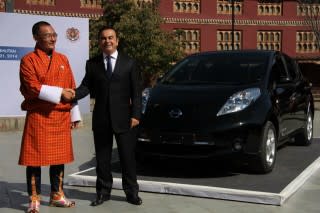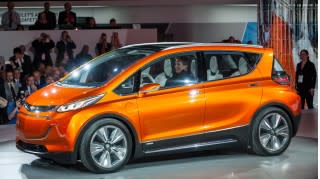Battery Breakthrough To Boost Nissan Electric Cars To One In 10 Sales Around 2020, Exec Says
Back in November 2009, Nissan CEO Carlos Ghosn said 20 percent of his company's sales would be electric cars by 2020--and that electric cars would make up 10 percent of global sales.
But Ghosn was widely pillored for his projections just a few years later, when Nissan Leaf sales proved slower than expected after its December 2010 launch.
As the car approaches its fifth birthday, around 200,000 Leafs have been delivered. It's the best-selling electric car in history, but still just a tiny fraction of the company's sales.
DON'T MISS: Nissan And Renault Have Now Sold More Than 250,000 Electric Cars (Jun 2015)
Global sales last year for Nissan and its French alliance partner Renault together were 8.5 million vehicles; battery-electric cars were 82,602 of those, or roughly 1 percent.
Nevertheless, Nissan said this week that it expects a major inflection point in electric-vehicle sales sometime between 2019 and 2021.

It will ramp up sales of electric cars to 5 percent of the total between now and then, the company said--and 10 percent "in the near future" after that.
The statements came not from Ghosn, but from Nissan corporate officer Hiroto Saikawa, at an event at the company's Yokohama headquarters on Tuesday.
ALSO SEE: Nissan Leaf With 250-Mile Range: Ghosn Shows R&D Car, Video At Annual Meeting
The enabling factor will be a "breakthrough battery" that permits a range of 200 miles, he said, which Nissan will launch within the next few years.
That battery is widely expected to be offered in the second-generation Nissan Leaf, to be introduced as a 2017 or 2018 model.


 Yahoo Autos
Yahoo Autos 
